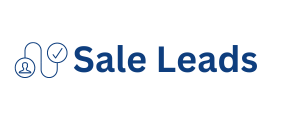What makes the image of a cow “overtly sexual”? The question seems somewhat ridiculous, but it is one that you can end up asking once you follow the reasons why Facebook has closed the advertising campaigns of some other SMEs. An image of a cow walking through a meadow was considered too sexy by the systems that control and authorize Malaysia Mobile Database advertising on the social network and banned. For the photographer who had launched the campaign, and who depends in his business on advertising on social networks and Google, the decision of the social network was one more in a long list. The photographer insists that there is nothing daring in his photos, but even so he has seen how Facebook closed campaigns with a neon sign that said “disco” (they accused him of promoting alcohol), with some photos of fireworks ( for breaking the regulations on gun advertisements) or an office skyscraper (like the cow, it was overtly sexual). His account came, directly, to be blocked for advertising.
The story of the British photographer is one of many, one that in this case includes an article from the BBC. It is not the first and possibly it will not be the last, because complaints about how ads are managed on social networks and how automated systems profile the information that is uploaded Brother Cell Phone List to them (at least when SMEs do it) are a constant for quite some time. The case of the photographer is similar to the one being denounced by several adapted and inclusive clothing companies, who have seen their ads canceled by the social network for questionable reasons. One of them tried to sell a sweatshirt asking for social distancing and was blocked by Facebook for promoting “medical and health care products and services that include medical devices” (although what they were selling had nothing to do with it). The brand appealed and Facebook ended up agreeing with it.
As published in The New York Times, the story is one example, one of many, of one of the problems that adaptive and inclusive fashion companies face on the social network. Their algorithms – on both Facebook and Instagram – often block their ads. One of the brands the Times spoke to says they usually come across this problem at least once a week. Why? In this case, the bias of the artificial intelligence that manages the automated control of the ads is the problem. “It is the story to be told of the consequences of classification in machine learning,” explains artificial intelligence expert Kate Crawford to the newspaper. The AI tries to create its “standard human” using different sources of information, but as has been shown in the past these sources actually make it have a skewed view of reality.
It happens, for example, with gender stereotypes and it also happens with the perception they have of humans with disabilities. Facebook is not the only company that faces this problem, true, but it is one of the most visible due to the importance of its advertising platform for companies. Likewise, to all this we must add how the advertising standards of online services – almost all of them American – see and order the world. The platforms adopt puritanical measures to avoid sexual content that would suppose a conflict in the US, but that end up having somewhat absurd ramifications. There is the story of the lawsuit in France against Facebook for censoring Courbet’s painting The Origin of the World for considering it pornography, but also all the stories that appear every time some organization tries to campaign against breast cancer. They are directly blocked.
Returning to the experiences of the photographer of the censored cows and what he points out to the BBC, the problem is not only that his ads are blocked but also the fact that they achieve an interlocutor in the tech companies – a human one who is not a machine. – it’s very complicated. You can’t talk to anyone to clear up that mistake, and machines continue to apply their biases and learned rules. And this is a problem that Facebook, for example, has been dragging on for a long time: its automated customer service has angered SMEs , its advertising reserve, who complain about the blocking of accounts and ads without being able to speak to someone real to clarify problems.

